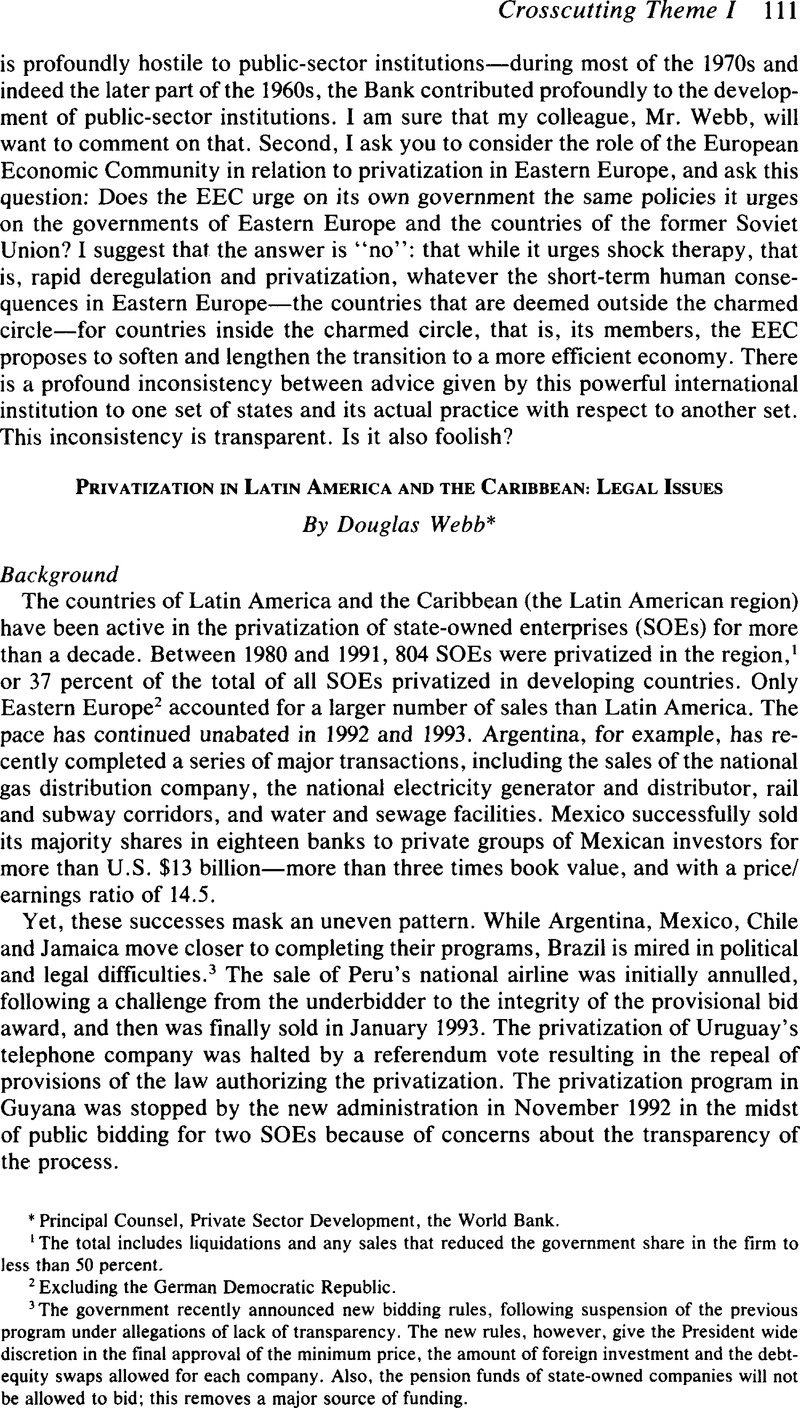No CrossRef data available.
Article contents
Privatization in Latin America and the Caribbean: Legal Issues
Published online by Cambridge University Press: 28 February 2017
Abstract

- Type
- The Shift in Markets: New Movements in International Law Responding to Privatization
- Information
- Copyright
- Copyright © American Society of International Law 1993
References
1 The total includes liquidations and any sales that reduced the government share in the firm to less than 50 percent.
2 Excluding the German Democratic Republic.
3 The government recently announced new bidding rules, following suspension of the previous program under allegations of lack of transparency. The new rules, however, give the President wide discretion in the final approval of the minimum price, the amount of foreign investment and the debtequity swaps allowed for each company. Also, the pension funds of state-owned companies will not be allowed to bid; this removes a major source of funding.
4 For a general treatment, see Kikeri, Sunita et al., Privatization: the Lessons of Experience (1992)CrossRefGoogle Scholar.
5 Pierre Guislain, Divestiture of State Enterprises: An Overview of the Legal Framework, World Bank technical paper 186 (September 1992).
6 Other critical areas include trade, labor law, taxation, banking, foreign investment and consumer protection.
7 In 1992, for example, the Bank approved a loan of U.S. $30 million to Venezuela, aimed at improving institutional development of the courts and the system for court administration.
8 See Guillermo Barnes, Lessons from Bank Privatization in Mexico, World Bank working paper 1027 (November 1992).
9 Employees who keep their shares will be entitled to their severance payment when and if it becomes due. There was an inducement to take up the offer in that employees are required to invest only 80 percent of the severance entitlement and receive the balance in cash.




